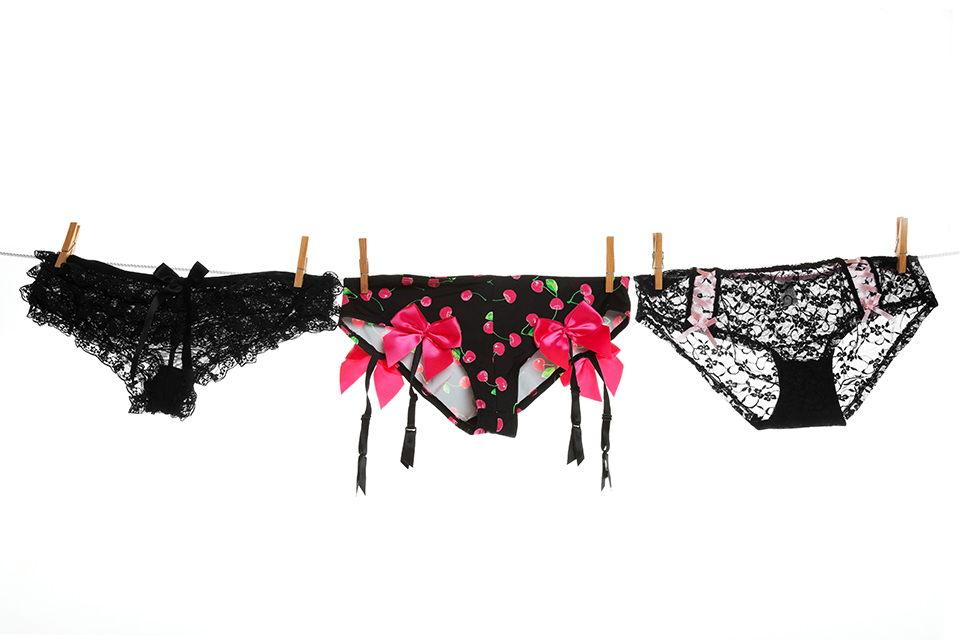Lea en español
Table of Contents
- Do you tire of all the safer sex messages and wonder where the sexy went in sex?
- Do you feel that living with HIV has taken the pleasure out of sex, or taken the sexy out of you?
You are not alone! Living with HIV can definitely sometimes take the fun and pleasure out of sex. Many women living with HIV struggle in one way or another with intimacy after being diagnosed — whether they struggle with stigma, fear of transmission, HIV drug side effects, body image issues, or just overall health.
So what's a woman to do? Despite these challenges, it IS possible to be a sexy woman living with HIV, to have a satisfying sexual life, and to get your sexy on! What you need is a little sex-esteem…
 A Few Tips to Boost Your Sex-Esteem!
A Few Tips to Boost Your Sex-Esteem!
What is sexy?
How do you know someone is 'sexy'? Is it based on their physical appearance, their confidence, their vitality, or how they dress? Generally, someone's sexiness is a complex thing that includes all aspects of a person and is not just about physical features. That is a good thing, because no human body is perfect, and all bodies change with age.
Sexiness is just as much about a person's attitude, personality, or values as it is about physical characteristics. No matter what anyone else may say or do, your attitude and the way you see yourself are yours and yours alone. In other words, you are sexy if you believe you are sexy!
Yes, you may be living with HIV, but that does not make you any less worthy of respect, love, or affection. HIV may challenge your body's immune system, but it does not have to steal your sexiness or your confidence. Nor is an HIV diagnosis a reason to expect less than anyone else would in a relationship. Being sexy is not about something you do or a certain way you look – it is about feeling good and being fully alive within yourself.
What is sex?
Have you ever thought about what 'having sex' means? Does it mean penetration? Does it mean having an orgasm? Although sexual desire and arousal may often lead to penetration and/or orgasm, these alone do not define a satisfying sexual encounter. Sex can also include emotional intimacy, sharing fantasies, 'talking dirty' or whispering 'sweet nothings,' 'petting' (sensual touch), sharing the warm waters of a bath or shower, and kissing. The more broadly you define 'sex,' the more things can bring you sexual pleasure and satisfaction.
(Re-)discover pleasure!
The key to having pleasurable, enjoyable sex is knowing what feels good to you. Pleasure is different for everyone, and can involve all the senses – sight, sound, taste, smell, and touch. For some, what sets the mood and comes before any physical contact is just as important as the physical, sexual contact itself. Some women prefer to learn what they find pleasurable while being sexually active with themselves (masturbation), while others like to learn what feels good in the company of another person. Regardless, it is important to find out what excites you, what turns you on, and what you are willing to do (or not!). You may find that what feels good to you changes over time.
Once you know what you like, it helps to be able to say it to your partner. Something as simple as "I like this," or "that feels good" can greatly enhance your sexual pleasure with a partner. If you feel safe, you may also find it helpful to talk openly with your partner about how it feels to be sexual while living with HIV. This can enhance your connection to and deepen your intimacy with your partner – and that in turn can help 'light the fire' between you.
It is also important to find out what feels good to your partner(s). Giving pleasure is as much a part of sex as receiving it and finding out what your partner likes sexually gives you an opportunity to talk about how to have pleasurable, protected sex. Many women find that when they feel confident being sexual, they enjoy sex more. Part of this confidence comes from not only knowing what feels good to you and your partner, but also understanding how to practice safer sex and have it feel good. There's a lot more room for pleasure when worry and fear about HIV transmission have been addressed. Safer, smarter sex can be fun and erotic. The trick is to pair protection with pleasure – which can require a bit of playful, sensual experimentation.
If you need help talking about using condoms, check out our fact sheet on Talking with Your Partner about Condoms. Other than barrier methods (condoms), which some people or their partner(s) may not wish to use, there are now several more options to protect against acquiring or transmitting HIV during sex. Treatment as prevention, or TasP, refers to ways in which we can use HIV drugs, or HIV treatment, to lower the risk of transmitting HIV. After many years of research and evidence, we now know that a person living with HIV who is taking HIV drugs and is virally suppressed (too little HIV in their body to measure with standard tests) can rest assured that they cannot sexually transmit HIV to a partner who is not living with HIV. For more information on this exciting development, see our Undetectable Equals Untransmittable fact sheet. In addition, pre-exposure prophylaxis, or PrEP, is a daily drug a person not living with HIV can take to keep them from acquiring HIV.
There are many ways to learn how to make sex feel better. You may find it helpful to check out your local sex shop or visit an online shop like Good Vibrations. There are all sorts of books, videos, toys, and safer sex supplies to choose from and play with. Some women find it helpful to test products when they are alone so that they feel more confident introducing the product or idea to their partner(s). Others make experimentation and testing part of sexy, playful interaction with their partner(s).
Sex is good for you!
If you sometimes wonder "why bother?" and think it might not be worth the effort, then this tip is for you. First, human beings are innately sexual beings. Being sexual – with yourself or another – is a normal part of being human. Every woman, including every woman living with HIV, is a unique human being who deserves to live a full and satisfying sexual life.
Second, being sexually active has several health benefits. Having sex can lower your stress levels and boost your immunity. It can lower your blood pressure and improve your heart health. As a good form of exercise, it burns calories.
Being sexual can increase levels of the hormone oxytocin (the 'love' or 'connection' hormone), which has been shown to increase feelings of trust, generosity, and intimacy. Oxytocin, in turn, boosts endorphins, the body's natural painkillers, so that pain may improve after sex. Lastly, oxytocin promotes sleep, which is a key ingredient to living a long and healthy life.
One more thing: researchers have found that having sex can raise your self-esteem. Those who already feel good about themselves may have sex to feel even better. That's right – having sex can help you feel better about yourself, which can then lead to your having more sex and feeling even better!
HIV and Intimacy
Sometimes the first part of feeling sexy is recognizing obstacles to letting yourself feel close to another person while you are living with HIV, and to try to overcome these barriers. Some of the main barriers to intimacy include:
- Physical health: It can be difficult to feel sexy or to want to be sexual when you feel tired, in pain, or sick to your stomach. In some ways this is very similar to how anyone with a chronic illness can feel. It can also be hard to consider yourself sexy if you are upset with how your body's appearance has changed since you learned you were living with HIV or began taking HIV drugs. To help with these issues, please take a look at our fact sheets on managing Side Effects, Lipodystrophy and Body Changes, Nutrition and HIV, and Physical Activity, Exercise, and HIV.
- Mental and emotional health: Many women living with HIV feel depressed. As primary caregivers, women often take care of others before themselves. Many women living with HIV also experience large life stressors such as racial discrimination, poverty, violence, and single parenthood, which can contribute to depression. For more information on how to treat and manage depression, please see Depression, Women and HIV.
- Stigma: There is still widespread stigma attached to HIV. This can cause people to feel shame about living with HIV – a fear that they are no longer worthy of love, connection, or relationships. Feeling sexy while living with HIV can be difficult when you see social messages suggesting that people living with HIV are somehow 'less' than others. Support groups and sharing with others who have similar experiences can help (see the Remember, You Are Not Alone section below).
- Disclosure: Disclosing your status can be stressful, and the fear of it can keep people from dating altogether, let alone having an intimate relationship with another person. While there are no perfect answers to the "when" and "how" questions around telling others about your status, our fact sheet on Disclosure and HIV has many helpful tips on this topic. Many A Girl Like Me bloggers have written about their personal experiences with disclosure; you can find their courageous writings here.
- Age: Despite the myth that older people do not have sex, many older women are sexually active. When women have gone through menopause, they may experience changes in their bodies related to their sexuality which they can learn to navigate while having a fulfilling sexual life. Menopause may signal the end of your fertility (ability to get pregnant), but it is not the end of your femininity or sexuality.
- Safer sex/transmission: Feeling sexy while living with HIV can also be tricky because, while being sexual is a normal, natural part of being human, sexual contact can be a major route for transmitting HIV. If you know you are living with HIV, it can be scary to think about passing HIV to a partner – and worrying about it can totally ruin the mood! Understanding how to practice safer sex, how HIV treatment can act as prevention, and how people with an undetectable viral load cannot transmit HIV can lead to much more fun and much less worry.
Let's Talk About Sex! For Sexual Health Month, stop in and listen to this exciting conversation between CAB members Kimberly Canady and Aryah Lester as these women navigate positive sexual health while living with HIV.
View other episodes in the A Girl Like Me LIVE series
Remember, You Are Not Alone
Because of the stigma and seriousness of an HIV diagnosis, women living with HIV can feel very isolated. If they are not already in a relationship, many women decide their days of dating (and their sex lives) are over after they are diagnosed with HIV. It can be very helpful to learn that there are other women out there, living – and being sexy! – with HIV.
There are many ways to learn how women living with HIV and other chronic illnesses are 'getting their sexy on' and leading full, satisfying lives. Check out some of the links on this page, read what some of our bloggers have written in A Girl Like Me, or join a support group. You may find it helpful to share some of your feelings about being sexy or sexual in the group (most likely you will not be the only one to have those feelings). If that is not comfortable for you, you might suggest privately that one support group meeting focus on sexuality or ask the group organizer to bring in a speaker to talk about it.
While the stigma of HIV may pose a threat to your self-esteem, it is important to believe in yourself and realize you deserve respect, love, and affection. You can choose to define sexy and sex in whatever way feels right to you, and to get your sexy on!



